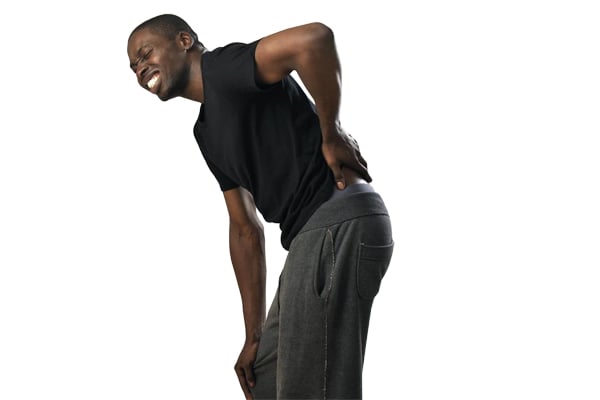Exercise dilemmas: When do you skip a workout?

Although we are conditioned to avoid pain, in the case of exercise a little discomfort, maybe even a little pain, can make us stronger. PHOTO/shutterstock
What you need to know:
There are those days when for one reason or another you ask yourself whether to work out or not. We look at some of these situations and give advice on what you can do
To keep the body fit and healthy, exercise is important. However, there are times when you have to draw a line between continuing to exercise and taking a rest.
For instance, Richard Luyima’s job dictates that he starts work at 8:00am and sometimes work up to 7:00pm during the week days. On Saturday, he leaves work at 2:00pm while his only day off is Sunday. Luyima says this tight work schedule causes a lot of fatigue, making working out very hard.
“Much as I exercise on Sunday and rarely in the evening after work, sometimes I feel so weak that I cannot lift any weights or even engage in light jogging. In most cases, to feel relaxed, I find myself just sleeping the whole day on Sunday,” Luyima says.
Stuart Oramire works out regularly. He does not only jog but also lifts weights at his home. He is quick to emphasise that resting, including sleeping, is as important to body as working out is.
“As you grow older, you have to work out more regularly but in shorter periods of time and rest more. A 25-year-old can work out for two hours but a 40-year-old cannot, much as they would physically like to do so. If you are older, you get better fitness results by engaging in shorter and regular sessions,” Oramire advises.
“Remember muscles equally replenish as you rest. And as you grow older, (35 years and above), it is important that you work out frequently but in shorter sessions. For instance, you should not work out beyond 45 minutes if you are above 40. The minimum you can exercise is at least three times a week,” Oramire adds.
Rogers Akankwasa agrees with Luyima, reasoning that sometimes, exercise dilemmas could be stress or pressure from work that may not allow you to concentrate at work or even as you work out.
“Much as exercising helps relieve stress, I balance it with resting. If I am not watching a movie, I sleep. I only exercise when I know I am ready for it but not when my mind is occupied with something that will affect my concentration,” Akakwasa says.
Pain after working out
Mahad Mukiibi, a fitness trainer, says taking different workout classes from the one you have been attending may at times come with pain. This is because you may want to undertake different exercises, which when not used to, cause pain.
“You will not feel the pain immediately or during the work out but a few hours later. It could even be the next morning. In this case, you will have to engage in exercises that your body is familiar with or those that are less intense and require you to use different body muscles,” Mukiibi explains.
“But if it is elbow, shoulder or knee joint pain, there could be a possibility that you pushed yourself harder than your body could contain, causing inflammation. In this case, you will have to stop working out for a day or two or until you no longer feel the pain. If you insist, it may lead to more complex issues,” Mukiibi adds.
You woke up with a little twinge in your back
According to everyday health, an online portal, this depends on whether you are dealing with a muscular issue or one that is related to nerves. Because you will not know until you start moving, try a low-impact activity such as walking and do not ramp up too fast.
“If it is muscular, movement can help stretch and loosen tight areas. However, if your back continues to send you warning signs, give yourself another day to recover. If it is still bothering you or you have full-fledged back pain, see a doctor,” the portal advises.
You have a cold
According to everydayhealth.com, as long as you do not have a fever and you feel like doing it, you are cleared to exercise. Just keep the workout intensity light to moderate and make sure you are staying hydrated.
Yet if you have a fever, defined as a temperature of 100.5 degrees Fahrenheit or higher, or you are coughing and hacking, sit this exercise session out until you are feeling better. And by all means, if you have the flu or another more severe viral infection, do what your body wants and rest. Otherwise, you could potentially negatively affect your immune system.
And if you participate in a group class or around others, it is responsible to hold off to avoid potential exposure to whatever infection you may be fighting.




